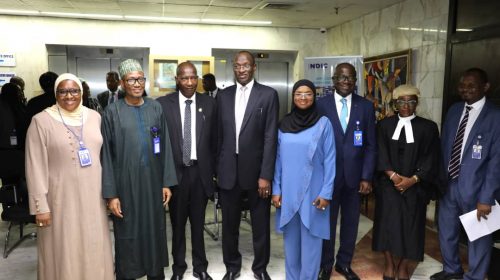CBN’s Policy Focused On Building More Sophisticated Economy – Emefiele

The Central bank of Nigeria (CBN) is determined to create a sophisticated economy anchored on agriculture, Micro Small and medium Enterprises (MSMEs).
Governor of CBN, Godwin Emefiele, disclosed this at a seminar, with the theme: ‘Policy Options for Economic Diversification: Thinking Outside the Crude Oil-Box’, organized by the apex bank for Finance Correspondents and Business Editors over the weekend.
He noted that the theme of the seminar was timely as CBN is seeking to change the narratives of Nigeria’s mono-product oil-led economy, towards building a broader and well diversified economy that guarantees overall macroeconomic stability.
“The quest for building a more sophisticated economy anchored on agriculture, MSMEs, industrial and manufacturing concerns have become the major component of our monetary policy.
‘Nigeria has largely depended on the oil sector for revenue generation over the past four decades and the sustained decline in crude oil production has continued to negatively undermine the performance of the economy. “Emefiele said.
The CBN governor who was represented at the event by the Director Corporate Communications Department, Osita Nwanisobi, underscored the urgent need for a conscientious effort to diversify to other non-oil sectors.
In his words, “As I have often said, it is important that we work to create an economy that will enable us feed ourselves, create jobs for our teeming youths and improve the standard of living of our people.
With our population growing by over 3 percent per annum over the past seven years, against a less than steady growth in output since 2019, expanding the production and industrial capacity of the economy must be given special attention to ensure overall macroeconomic stability.
“The Central Bank of Nigeria, under my leadership, has taken major leaps to diversify the economy away from largely oil-based economy through our numerous interventions.
“We have supported non-oil sectors such as agriculture, manufacturing, health care, education, power and aviation and other allied economic value chains.
“You may recall that our flagship Anchor Borrowers’ Programme (ABP) that heralded recent rice revolution in Nigeria has changed the long-standing dependence on imported rice as the country is not only depending on domestic production, but we have now become a rice exporting country.
The Commercial Agriculture Credit Scheme (CACS) is a major special purpose vehicle to support commercial farmers in the country in different value chains including oil palm, cotton, cocoa, among others.”
“Our continued support to the manufacturing sector and MSMEs have been yielding great results as the implementation of 44 items not valid for FX for imports has revealed.
Let me take this medium to inform you once again that our intervention in the health sector, for example has begun to reduce the health care tourism being sought outside the country which is helping to conserve our foreign exchange and improve our well-being.
Furthermore, the new 100 for 100 Policy on Production and Productivity (PPP), which is targeted at harnessing our local raw materials to increase our domestic production, as well as exports through our deliberate credit and other supports, will soon begin to yield quality results.
More so, the RT200 FX initiative designed to take advantage of our large domestic production to other regional markets is targeted to increase foreign exchange inflows to the economy and support exchange rate stability.”






Leave a Reply